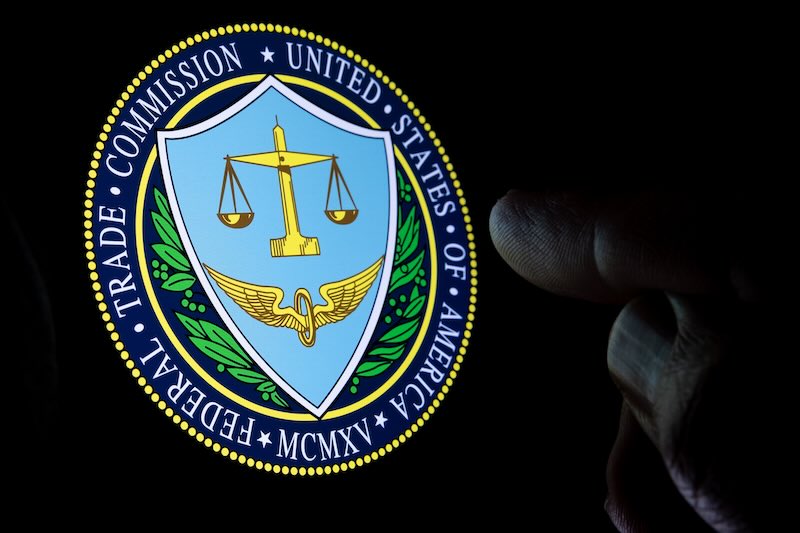Faking Your Customer Reviews is Going to Cost You…BIG TIME
Faking Your Customer Reviews is Going to Cost You…BIG TIME
We’ve all seen it: a business gets a 1-star review on an online site and feels they need to combat it. It’s why 84% of consumers find online written reviews suspicious.
Many businesses follow ethical guidelines and simply reply to the poster, hoping to improve the situation and mitigate negative response from readers. Others, however, have turned to a shadier path, creating their own 5-star reviews to bring their scores higher and lure customers back. And some businesses have gone even farther by hiring companies who will generate fake reviews and testimonials via AI and other methods.
You can see Kay Dean call out some of these offenders on her YouTube channel, with plenty of data and support behind her exposing businesses for having fake reviews.
If you or your business have generated any fake reviews, you’re going to want to remedy that, and fast.
The Federal Trade Commission has been working for some time now on laws surrounding fake reviews and testimonials. In a press release from the Federal Trade Commission dated June 30, 2023, new regulations and compliance guidelines are set forth to ensure fair advertising.
While these have not been formalized and set into motion, businesses can expect this will pass and you will pay fines in excess of $50,120 per offense.
The Federal Trade Commission has proposed a new rule to stop marketers from using illicit review and endorsement practices such as using fake reviews, suppressing honest negative reviews, and paying for positive reviews, which deceive consumers looking for real feedback on a product or service and undercut honest businesses.
“Our proposed rule on fake reviews shows that we’re using all available means to attack deceptive advertising in the digital age,” said Samuel Levine, Director of the FTC’s Bureau of Consumer Protection. “The rule would trigger civil penalties for violators and should help level the playing field for honest companies.”
In its notice of proposed rulemaking, the Commission cited examples of clearly deceptive practices involving consumer reviews and testimonials from its past cases, and noted the widespread emergence of generative AI, which is likely to make it easier for bad actors to write fake reviews.
The proposed rule would prohibit:
- Selling or Obtaining Fake Consumer Reviews and Testimonials: The proposed rule would prohibit businesses from writing or selling consumer reviews or testimonials by someone who does not exist, who did not have experience with the product or service, or who misrepresented their experiences. It also would prohibit businesses from procuring such reviews or disseminating such testimonials if the businesses knew or should have known that they were fake or false.
- Review Hijacking: Businesses would be prohibited from using or repurposing a consumer review written for one product so that it appears to have been written for a substantially different product.
- Buying Positive or Negative Reviews: Businesses would be prohibited from providing compensation or other incentives conditioned on the writing of consumer reviews expressing a particular sentiment, either positive or negative.
- Insider Reviews and Consumer Testimonials: The proposed rule would prohibit a company’s officers and managers from writing reviews or testimonials of its products or services, without clearly disclosing their relationships. It also would prohibit businesses from disseminating testimonials by insiders without clear disclosures of their relationships, and it would prohibit certain solicitations by officers or managers of reviews from company employees or their relatives, depending on whether the businesses knew or should have known of these relationships.
- Company Controlled Review Websites: Businesses would be prohibited from creating or controlling a website that claims to provide independent opinions about a category of products or services that includes its own products or services.
- Illegal Review Suppression: Businesses would be prohibited from using unjustified legal threats, other intimidation, or false accusations to prevent or remove a negative consumer review. The proposed rule also would bar a business from misrepresenting that the reviews on its website represent all reviews submitted when negative reviews have been suppressed.
- Selling Fake Social Media Indicators: Businesses would be prohibited from selling false indicators of social media influence, like fake followers or views. The proposed rule also would bar anyone from buying such indicators to misrepresent their importance for a commercial purpose.
We can help you.
At Share.One, we are reputation experts. Our mission is to provide high-quality video testimonials for your business in the most ethical, professional and cost-effective way possible.
Meet with our team to discuss how Share.One’s approach delivers authentic, real experiences given by real customers.
Let us help you recover your reputation and deliver REAL social proof for your social media, marketing and ad campaigns.
Latest Resources
- Testimonial Questions Guide to Amplify Customer Voices
- Navigating FTC Compliance for Testimonials and Reviews: Insights from Peter Hoppenfeld
- 10 Killer Video Testimonial Examples That’ll Skyrocket Your Business
- Maximizing Retention: Leveraging the Customer Loyalty Score for Your Business
- 10 Essential Tips for Effective Video Testimonial Production
Top Questions to Ask During a Testimonial
Download the worksheet that guides you to create the best questions to ask during a testimonial interview.


